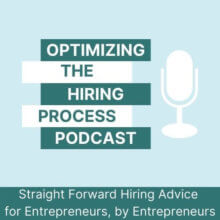Content
As all expert recruiters and companies know, the actual hiring process is a pre-employment test for job candidates. Nevertheless, when we discuss pre-employment assessment, we discuss standardized tests. Their goal is to evaluate an applicant’s set of skills and abilities, intelligence, reasoning, etc. It has been a common practice since the eighties for companies to use a cognitive ability test for different job profiles.
Those organizations proved to be very successful. Others are still sticking to structured or unstructured interviews and maybe some technical skills/job knowledge testing. Should they start changing their perspective? Let’s learn today why recruiters should all use at least one cognitive ability test in their hiring process!
What is a Cognitive Ability Test: A Quick Reminder
According to specialists, the cognitive ability test definition is straightforward. It is an instrument or a set of tests designed to assess an individual’s abilities in specific functional areas. For this reason, recruiters can choose among several employment cognitive assessment tools. They evaluate candidates’ rational thinking, problem-solving, spatial awareness, math & numbers skills, working memory, and so on.

While they come with their fair share of flaws, cognitive ability tests found fertile ground in organizational psychology. Now we find them in personnel recruitment and employee evaluation in civilian and military sectors.
Since the 80s, as science and research progressed, recruiters and companies have used a wide selection of cognitive ability test instruments.
Skills, Aptitudes, Abilities
Beginner recruiters may wonder what skills and aptitudes they can measure with a cognitive ability test. To answer this question, let’s remind everyone what psychology considers to be peoples’ core mental capacities:
- Sustained attention;
- Multiple simultaneous attention;
- Working memory;
- Long-term memory;
- Response inhibition;
- Information processing speed;
- Cognitive thinking flexibility and control;
- Pattern recognition;
- Category formation;
- Logic and reasoning;
- Verbal processing;
- Auditory processing;
- Visual processing.
In psychological research, cognitive abilities (sometimes called “general intelligence”) include and reflect an individual’s capacity to
reason, plan, solve problems, think abstractly, comprehend complex ideas, learn quickly, and learn from experience. Beyond memorization or imitation, intelligence supports the ability to comprehend situations. People figure out what is needed fast and plan a course of action. Cognitive ability is closely associated with educational attainment, occupation, and health outcomes.
In human resources, recruiting, and organizational psychology, when we talk about cognitive ability tests, we usually refer to the instruments assessing the following individual’s brain functions:
- Logical ability;
- Verbal reasoning;
- Numerical reasoning;
- Matrix reasoning;
- Perceptual speed and accuracy;
- Problem-solving, etc.
Now that you have a fresher image of what a cognitive ability test can measure let’s see now why you should use one or more during the hiring process.
7 Reasons to Use a Cognitive Ability Test in the Recruitment Process
A personality/behavior assessment tool and a behavioral interview shine some light on how a person acts in various situations and interacts with people. A cognitive ability test offers you insight into how a candidate thinks. But let’s clarify the significant reasons why you should consider introducing cognitive testing in your hiring approach.
1. Cognitive Abilities are Predictors for Job Performance
Psychology and social sciences focused on cognitive abilities as job performance indicators for a very long time. They found that cognitive ability, in general, is one of the most potent predictors of career success. The correlation coefficient of cognitive testing and job performance across all professions, levels, and industries is 0.51. A score of 1.0 reflects a perfect, 100% predictor, which science does not have yet.
According to the American Psychological Association,

‘Optimizing the Hiring Process Podcast‘
general cognitive ability influences job performance largely through its role in the acquisition and use of information about how to do one’s job. Individuals with higher levels of cognitive ability acquire new information more easily and more quickly and can use that information more effectively.
In other words, a cognitive skill test helps you find the right people for the right jobs and positions. The traditional interviews focusing on work experience and education have very low correlation coefficients: 0.18 or even 0.1.
Recruit Capable People for Organizational Success
You do not even have to go so far as to delve into psychology studies and research papers. It is enough to read the news. Some giant multinational corporations adopt cognitive testing as a part of their recruiting process. They will continue to do so in the future.
Fortune 500 companies and their peers have known a truth that smaller companies only now understand. The most crucial asset in an organization is its people. Companies need their driving force – employees – to align, adjust, and learn quickly. They have to stay ahead in an ever-changing and increasingly competitive organizational and economic landscape.
As one of the most famous researchers in the field put it, there is no debate regarding the role of cognitive skill testing as a foolproof predictor of job performance.
2. Cognitive Ability Tests Generate Science-Validated Results
As we said, cognitive assessment has been in use for personnel selection since World War I. You can easily imagine that experts had enough time to ensure the scientific validity of such evaluation instruments. They also refined them to become crucial components of any recruitment process.
Research shows that cognitive ability (intelligence) is a good predictor for:

- leadership;
- career potential, creativity, and innovation;
- extrinsic career success (candidates are more likely to get promotions and higher salaries over time);
- increased company loyalty (employees are less likely to look for jobs somewhere else), etc.
In this context, it would be a shame to disregard the use of any cognitive ability tests. You should not give up on traditional structured or unstructured interviews, of course. However, when hiring for cognitive skills, a company is upping its game in the recruitment process.
3. Cognitive Assessment Tests Are Versatile
They are just as versatile as technical aptitude tests. You can choose what cognitive skills to assess as primary abilities and what to assess as secondary skills. Recruiters now have a wide range of validated cognitive tools to choose from and apply during the recruitment process.
For example, a verbal reasoning cognitive test allows the recruiter to gain useful insight into a candidate’s abilities to:
- Comprehend what they read and what they hear;
- Understand others’ intention, whether transmitted verbally or in writing;
- Speak and understand a language;
- Filter key information from a block of text or verbal speech;
- Identify and understand others’ tone of voice and act accordingly;
- Follow written or verbal instructions to come up with a solution;
- Understand and process written text or verbal messages quickly;
- Solve word problems;
- Understand concepts transmitted in words;
- Communicate clear and comprehensive messages verbally or in writing, etc.
As you can see, verbal reasoning, overall, is a person’s ability to understand and reason concepts framed in written or spoken words. It is a crucial cognitive skill in a wide variety of jobs, industries, and positions.
Match Position with Its Corresponding Cognitive Skills
Use this type of cognitive ability test (together with a dedicated and tailored interview) when you recruit for customer service. The same test works very well when hiring lawyers and paralegals, retail workers, marketing and PR employees, consultants, financial advisors, copywriters, advertising staff, and more.
Needless to say, when you look for experts in high-end positions, you should use a full cognitive ability test with all the instruments it comes with from its provider.
4. Cognitive Ability Tests are Easy to Apply, Score, and Interpret
The days when you had to present the candidates with pen-and-paper tests to fill are long gone. So is the time you wasted consulting charts and scoring the results by hand, only to figure what interpretation went with the respective score.
In our modern world, you have access to dozen of validated online/computerized cognitive tests. The applicant spends 20 to 30 minutes answering the questions. At the end of the evaluation, the program displays the results and their interpretation. This makes the entire review a fast and easy process for everybody involved. Once the tool delivers the results of each candidate, you can identify your top candidates.
Of course, you should select your top performers for subsequent evaluation with the help of psychological/behavioral assessment tools, technical skills testing, emotional intelligence tests, interviews, and so on.
5. Cognitive Tests Help You Hire Fast Learners

According to a pioneer in cognitive testing for job performance prediction – Frank L. Schmidt’s – findings, at the crux of this relationship lies an individual’s capability of learning fast and use the newly acquired information properly.
Schmidt says that the candidates with the highest cognitive skills scores are the ones who will absorb and adapt to new knowledge faster than others. They are the outperformers of a company. In other words, they are the assets all organizations rely on when they need people to act efficiently on new knowledge.
6. Cognitive Assessment Tools Help You Recruit Adaptable Candidates
Adaptability is a skill, a personality trait, a quality if you want. It reflects a person’s capacity to adjust to changes to their environment. When you test for adaptability – and cognitive tools help you do that – you evaluate more than just one thing. Here are some sub-sets of skills and capabilities you should consider:
- Quick responses to changing tasks, responsibilities, teams, job positions, ideas, methodologies, expectations, work strategies, trends, etc.
- Display high levels of soft skills: communication, problem-solving, decision-making, interpersonal communication, creative thinking, etc.
- High frustration tolerance to change;
- Assertiveness;
- Quick learning;
- Intrinsic motivation and internal locus of control;
- Teamwork skills;
- Leadership skills;
- Independence in working, etc.
Adaptability is crucial in the workplace in our times. You can pick some cognitive assessment tests to get a better insight into your candidates and pair them with personality tests and behavioral interview questions.
7. Cognitive Tests Help You Hire for Talent
Do not for a second mistake cognitive skills with an intelligence coefficient. The multiple intelligence theory has been around for a while, and it is here to stay, especially since science validates it. You don’t have to be a psychology scholar to know that some people show high verbal/linguistic skills, while others perform great in math, numbers, spatial/visual tasks, and so on.
Cognitive assessment tools evaluate specific sets of brain functions.
EXAMPLE 1: Suppose you want to hire the best accountant for your firm. In that case, you should focus on assessing numerical aptitude, problem-solving, code deciphering, pattern recognition, understanding of abstract symbols and formulae, matrix reasoning, and more.
EXAMPLE 2: When you hunt for a marketing specialist, you should test for creative writing, lexical/linguistic skills, formal speech skills, verbal argumentation, written and spoken communication, empathy practices, collaboration skills, etc.
Cognitive Tests and Personality Inventories Work Better Together
Back in the day, the standard IQ test was everything recruiters needed. Sometimes, the world’s best personality inventory was enough to hire someone. However, when you apply them alone, they can predict so much of a candidate’s job performance.
In the past hundred years, cognitive skill tests completed and complemented traditional assessment by focusing on peoples’ brain skills, hard and soft abilities, competencies, aptitudes, etc. In combination with other tests and instruments, they are the surefire way to hire for talent and adaptability.
Final Thoughts
Keep in mind that a cognitive ability test is not flawless. Scientific research shows that cognitive ability testing associates with ethnic group differences and, therefore, with lower minority groups/ethnicities representation in organizations.
On the other hand, personality inventories do not yield the same group differences in minority groups or ethnicities. For this reason, recruiters should use both types of evaluation instruments, as the sum is more accurate in predicting job performance and conscientiousness than its separate parts.
What cognitive ability test do you use in your recruitment process? Are you pairing it with a behavioral evaluation tool? We would love to know your opinions on this matter!
